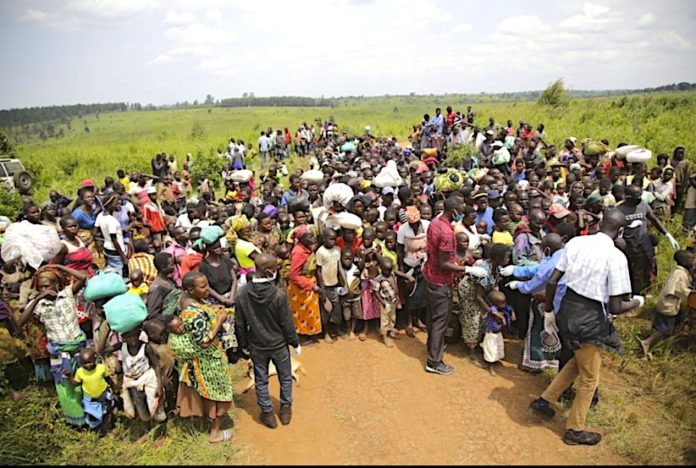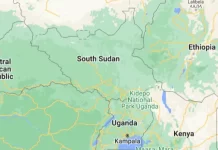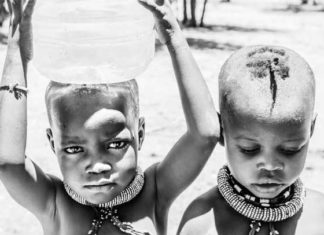
The government of Uganda has decided to temporarily reopen two of its borders to welcome refugees from neighboring DR Congo.
UNHCR, the UN Refugee Agency, has welcomed the decision by the Ugandan governemnt to provide safe haven to thousands of refugees fleeing escalating violence in the eastern Democratic Republic of the Congo (DRC). The refugees had been stranded in a remote, inaccessible area in Mahagi Territory since late May.
The new arrivals were previously part of a larger group of approximately 45,000 people, according to local DRC authorities, who had attempted to flee towards the Ugandan border with the DRC shortly after deadly militia attacks on civilians in Ituri province on 17 and 18 May. While some have been able to return to their area of origin, thousands remained close to the border.
More than 3,000 refugees from the Democratic Republic of the Congo (DRC) arrived in Uganda between Wednesday and Friday last week (1 – 3 July) during a temporary opening of two border crossing points at Golajo and Mount Zeu, north-western Uganda, according to Charlie Yaxley, UNHCR’s spokesperson.
“Sixty-five per cent of the new arrivals are children. The group also included 33 pregnant women,” adds Yaxley. “Some of the refugees shared heart-wrenching accounts of militia attacks on their villages with our staff. Many of them told us that they were separated from their families and had little time to pack any belongings or look for family members before fleeing. Very few were able to carry personal items and most fled barefoot with only the clothes they were wearing.”
“My gratitude goes to the Ugandan Government and the local communities for this great show of solidarity with people fleeing conflict,” says Joel Boutroue, UNHCR’s Representative in Uganda. “It proves that even in the midst of a global crisis like COVID-19, there are ways to manage border restrictions in a manner which respects international human rights and refugee protection standards.”
The Ugandan president directed the border opening on humanitarian grounds.
Uganda implemented restrictions on border travel in March to contain the spread of COVID-19, halting admission of new asylum-seekers into the country. On humanitarian grounds, the President of Uganda directed its Government to temporarily re-open the Zombo border to allow life-saving aid and protection to be provided to the group of refugees. The Government has indicated that border controls are set to be reintroduced, once the humanitarian operation is complete.
All new arrivals will undergo security and health screening at the border. Vulnerable individuals will be identified and fast-tracked for assistance, according to a statement realased by the UNHCR.
“The group will initially be quarantined at Zewdu Farm Institute near the border crossing, which can accommodate some 6,000 people now. UNHCR and partners have installed tents, health screening areas, toilets, handwashing facilities and water tanks,” the statement reads.
Following the mandatory quarantine period of 14 days, in line with national guidelines and protocols, asylum-seekers will be transported to existing refugee settlements.
The refugee response in Uganda is facing multiple challenges due to underfunding, including severe food ration cuts. Many of UNHCR’s transit and reception facilities across the country have been converted into quarantine centres for the district, where the aid agency provides additional support for hundreds of Ugandans and refugees on a daily basis.
“The needs are huge and growing,” says Boutroue. “Time is of the essence. If US$28 million is not made available immediately, we are faced with the risk of having to stop critical services providing non-COVID19 related health care, child protection and mental-health support.”
UNHCR has received just 18 per cent of the US$357 million required for its operation in Uganda.
According to UNHCR, it has received just 18 per cent of the US$357 million required for its operation in Uganda. The agency has appealed for international solidarity to help Uganda uphold its commitments towards the Global Compact on Refugees and maintain its progressive refugee policy during these difficult times.
See Also: Refugees in Uganda: A Burden or An Asset to the Host?










